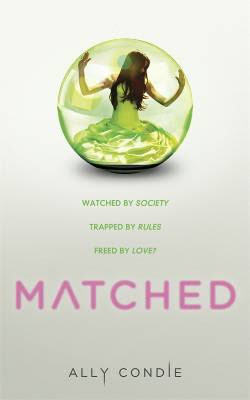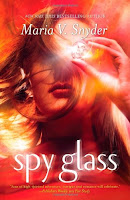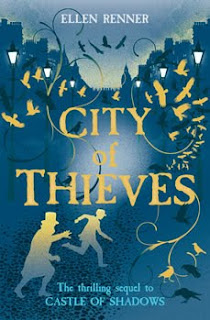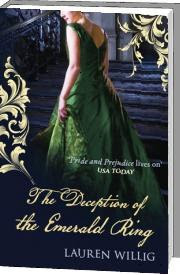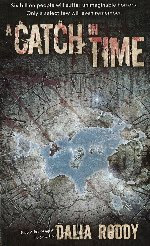Rosemary Hayes is the author of more than 30 novels for children. Her most recent novel, The Blue-Eyed Aborigine, has just been released, and I was fortunate enough to learn that Rosemary was scheduled for a book signing in my very own home town this Thursday past - and Rosemary was kind enough to agree to answer a few questions after the signing.
So, everybody, a big internet round of applause for Rosemary Hayes, author of The Blue-Eyed Aborigine
!Hi, Rosemary. Thanks so much for agreeing to answer a few questions. First of all, some readers might not be aware that the events of The Blue-Eyed Aborigine are actually based on historical fact. I was wondering, did this story deliberately begin with the history, or did something else spark off the story and then you found that the history fitted the story you wanted to tell?Actually, a few years ago I never knew of the history, although it's something that West Australians are very aware of. I was at the maritime museum in Perth four years ago and that was when I read about the shipwreck of the
Batavia for the first time. I was intrigued by the fact that these two men had been marooned instead of hanged. The records of the event are quite complete, and the first half of the novel is based entirely off the Commander of the
Batavia's diaries.
The second part, however, is wholly my imagination. I wrote it so that Jan was a boy who'd just gotten caught up in the charm and charisma of the leader of the mutiny, and there are two incidents in the Commander's description of events that made me think that Jan was not altogether black. First of all, he was told to kill people and he couldn't, and wept. Secondly, when he was sentenced to hang, he begged and wept at the feet of the Commander and said that he'd been made to do those things. And Wouter, the other man marooned with Jan, is recorded as having been kind to the women passengers.
What was it particularly that fascinated you about this event in history?Well, if these two men who were marooned survived - and there is strong evidence that they did - then they would have been the first European settlers, 140 years before Captain Cook landed. But of course, the British are always right, so we're never taught this in school in England.
The evidence that they survived is that the first British explorers to the region came across Aboriginals with Dutch features; fair hair and some blue eyes. More recently, just this year, one of the Aboriginal tribes agreed to undergo DNA testing, and the results confirm that this tribe has Western European genetic components. They're now testing to see if they can confirm that it predates Cook.
That's fascinating! And so reflective of the way that history is told by the winners.On a somewhat related note, were there any particular difficulties writing a story based so closely on fact?Well, you have to stick to the facts as much as you can. And there are always conflicting opinions. In the end you just have to decide which way you're going to go for the sake of the story. Also, you have to make sure everything the reader needs is there; in
The Blue-Eyed Aborigine, I had to contextualise the story with the first part of the novel in order to get to the second, imagined part.
Just in terms of the two part structure of the novel, you've suggested that that's because it's fact and fiction, but in doing that why particularly did you feel that the third person narrative was more apppropriate for the fact and the first person narrative with the alternating points of view for the fiction?Funny enough, I did it first person all the way through to begin with, and my publishers didn't like it. They felt that the more violent part needed to be slightly removed, and I put it into the third person.
And then made the second part first person and created a contrast between the two, that was another reason; it helped change the tone.
I'd have to agree with that; when I hit the first person section as I read, all of a sudden the tone changed and lifted. So relating to what you said, then, about having to distance the violence, there are still a few scenes in the novel that are quite graphic, particularly some of the things that happen to Lucretia. How do you see that fitting in a children's novel?Well, I think that children know that there is violence is around, and the times
were very violent and you can't avoid that. You can't make it saccharine when it's not. Equally, on the ship the conditions were absolutely dreadful; people were dying all the time.
And I did read that if the sailors washed their clothes in sea water, the clothes got all stiff and salty and itchy, so they did wash their clothes in their own pee. You know, that's the kind of thing that children love, the filth and the rotting teeth and nasty things to eat.
They made me take out the wriggling worms in the water, though; I can't think why, maybe that was just too much. But there were, little wriggling worms all through it, because the water was so stale.
Urgh. Not very pleasant at all!
Just a couple of general qestions to end on. In terms of your career and development as an author, if there was one thing you could tell yourself back when you first started writing that you know now, what might you tell yourself?I think something that my very first editor told me that was incredibly valuable: show, don't tell. An old chestnut but it is so relevant. That, and don't air your knowledge.
The first book I wrote was runner up for a rather big award in England and it was called
Race Against Time, again actually set in Australia as that was when we were living in Australia, and I had found out all about artesian wells. When the children in the novel were being chased by something nasty, I made them come across an artesian well and discover it. When my editor read it she flung up her hands in horror and said, "For Heaven's sake, take that out, it's so unrealistic!" And so that sort of thing, being preachy in any way. Get rid of things - I mean, unless it propells the story forward, get rid of it.
I do quite a lot of advisory work for want to be writers in England and I say to them all the time don't put in unnecessary things, even if you think you're terrible clever for knowing something and the reader must learn it too. Unless it's actually relevant to the story, get rid of it. And characters too; unless they're actually going to take part and be proactive in the story, get rid of them. Those are the two most important things.
As a writer myself, I would absolutely would have to agree with that. My last question is a bit of a fun question. If you yourself had to be marooned, where would you want to be marooned?Somewhere warm, without pests and with things I didn't have to shoot to eat! Other than that I don't mind very much. But I'd quite like to be marooned with a large amount of books to read.
Sounds good to me! Any books in particular?Well, I've just finished I think the best novel I've ever read in my entire life, and that is Hilary Mantel's
Wolf Hall and I could read that again several times over. She won the Booker Prize last year. It's a huge book and it is absolutely brilliant, set in Tudor times about Cromwell. It moves along at a huge pace, a complex rendering of the atmosphere at the time and the dialogue is just so well formed; so I would recommend that to anyone.
Sounds like I'll have to add that to my list. Thank you for the recommendation, and thank you so much for agreeing to answer some questions for me. I hope all the readers on the blog enjoy!
And, dear readers, I most certainly hope you did. Once again, a round of internet applause in the comments for Rosemary Hayes! :)

